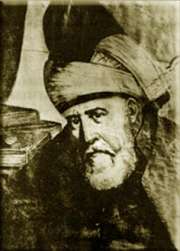Страница: 4 : 3 : 2 : 1
Biography
:
 Проза 2005-05-06 (9437 Показы) Проза 2005-05-06 (9437 Показы)
Ca să vindec arsura tristeții Tale
:
 Стихотворения 2016-03-09 (3109 Показы) Стихотворения 2016-03-09 (3109 Показы)
Călărețul și omul care a înghițit un șarpe
: din volumul: „Iubire și zbor extatic în Inima Divină Infinită”
 Стихотворения 2018-05-15 (3052 Показы) Стихотворения 2018-05-15 (3052 Показы)
Când pieptul ți se eliberează
:
 Стихотворения 2016-03-09 (3276 Показы) Стихотворения 2016-03-09 (3276 Показы)
Când sunt cu Tine, iubindu-Te
:
 Стихотворения 2016-02-22 (3184 Показы) Стихотворения 2016-02-22 (3184 Показы)
Când sunt cu tine…
:
 Стихотворения 2015-10-18 (3612 Показы) Стихотворения 2015-10-18 (3612 Показы)
Cântecul flautului din trestie (variantă)
: din volumul: „Iubire și zbor extatic în Inima Divină Infinită”
 Стихотворения 2018-05-16 (2894 Показы) Стихотворения 2018-05-16 (2894 Показы)
Casa de oaspeti
:
 Стихотворения 2003-09-11 (10901 Показы) Стихотворения 2003-09-11 (10901 Показы)
Căutând fața Ta
: din volumul: „Iubire și zbor extatic în Inima Divină Infinită”
 Стихотворения 2018-04-28 (2929 Показы) Стихотворения 2018-04-28 (2929 Показы)
Ce cauți?
: din volumul: „Iubire și zbor extatic în Inima Divină Infinită”
 Стихотворения 2018-05-02 (2938 Показы) Стихотворения 2018-05-02 (2938 Показы)
Ce pierdere!
:
 Стихотворения 2005-03-30 (9366 Показы) Стихотворения 2005-03-30 (9366 Показы)
Chemarea iubirii
:
 Стихотворения 2003-10-02 (8410 Показы) Стихотворения 2003-10-02 (8410 Показы)
Ciine este acest rege?
: din volumul: „Iubire și zbor extatic în Inima Divină Infinită”
 Стихотворения 2018-05-21 (2984 Показы) Стихотворения 2018-05-21 (2984 Показы)
Cine este la usa Mea?
:
 Стихотворения 2003-09-20 (7728 Показы) Стихотворения 2003-09-20 (7728 Показы)
Citește o singură pagină din cartea noastră
:
 Стихотворения 2016-03-09 (3077 Показы) Стихотворения 2016-03-09 (3077 Показы)
Corabia scufundată în dragoste
:
 Стихотворения 2015-10-26 (3846 Показы) Стихотворения 2015-10-26 (3846 Показы)
Creatorul
: din volumul: „Iubire și zbor extatic în Inima Divină Infinită”
 Стихотворения 2018-05-06 (3069 Показы) Стихотворения 2018-05-06 (3069 Показы)
Cu a iubitului apă a vieții
:
 Стихотворения 2016-03-09 (3041 Показы) Стихотворения 2016-03-09 (3041 Показы)
Cu adevărat
: din volumul: „Iubire și zbor extatic în Inima Divină Infinită”
 Стихотворения 2018-05-20 (2924 Показы) Стихотворения 2018-05-20 (2924 Показы)
Cum ai putea găsi doar perla uitându-te la mare?
:
 Стихотворения 2016-03-09 (3132 Показы) Стихотворения 2016-03-09 (3132 Показы)
Dacă mori, Dumnezeu îți dăruiește o altă viață
:
 Стихотворения 2016-01-09 (3685 Показы) Стихотворения 2016-01-09 (3685 Показы)
De ce sufletul meu nu prinde aripi atunci când îți aude chemarea?
: din volumul: „Iubire și zbor extatic în Inima Divină Infinită”
 Стихотворения 2018-05-01 (2681 Показы) Стихотворения 2018-05-01 (2681 Показы)
Deschide fereastra inimii tale
: din volumul: „Iubire și zbor extatic în Inima Divină Infinită”
 Стихотворения 2018-05-18 (3027 Показы) Стихотворения 2018-05-18 (3027 Показы)
Diferite trucuri și deghizări
: din volumul: „Iubire și zbor extatic în Inima Divină Infinită”
 Стихотворения 2018-05-15 (2850 Показы) Стихотворения 2018-05-15 (2850 Показы)
Din dragostea noastră pentru vacuitate
: din volumul: „Iubire și zbor extatic în Inima Divină Infinită”
 Стихотворения 2018-05-01 (3019 Показы) Стихотворения 2018-05-01 (3019 Показы)
Dincolo de această lume
: din volumul: „Iubire și zbor extatic în Inima Divină Infinită”
 Стихотворения 2018-04-29 (2888 Показы) Стихотворения 2018-04-29 (2888 Показы)
Dincolo de aparența contrariilor
: din volumul: „Iubire și zbor extatic în Inima Divină Infinită”
 Стихотворения 2018-05-21 (2850 Показы) Стихотворения 2018-05-21 (2850 Показы)
Dorință
: din volumul: „Iubire și zbor extatic în Inima Divină Infinită”
 Стихотворения 2018-05-07 (2958 Показы) Стихотворения 2018-05-07 (2958 Показы)
Dragostea este stăpână
:
 Стихотворения 2015-10-26 (3727 Показы) Стихотворения 2015-10-26 (3727 Показы)
Dragostea vine din infinit...
:
 Стихотворения 2015-10-18 (3435 Показы) Стихотворения 2015-10-18 (3435 Показы)
Fereastra sufletului
: din volumul: „Iubire și zbor extatic în Inima Divină Infinită”
 Стихотворения 2018-05-06 (3010 Показы) Стихотворения 2018-05-06 (3010 Показы)
Gratia viziunii pure
:
 Стихотворения 2003-10-02 (7273 Показы) Стихотворения 2003-10-02 (7273 Показы)
În răsăritul fericirii
:
 Стихотворения 2016-01-09 (3566 Показы) Стихотворения 2016-01-09 (3566 Показы)
Îndrăgostitul nu caută fericirea
: din volumul: „Iubire și zbor extatic în Inima Divină Infinită”
 Стихотворения 2018-05-23 (3045 Показы) Стихотворения 2018-05-23 (3045 Показы)
Inima
:
 Стихотворения 2005-03-30 (9940 Показы) Стихотворения 2005-03-30 (9940 Показы)
Inima mea înflăcărată
: din volumul: „Iubire și zbor extatic în Inima Divină Infinită”
 Стихотворения 2018-05-19 (2810 Показы) Стихотворения 2018-05-19 (2810 Показы)
Intelectualul
: din volumul: „Iubire și zbor extatic în Inima Divină Infinită”
 Стихотворения 2018-05-02 (2864 Показы) Стихотворения 2018-05-02 (2864 Показы)
Intoxicat de iubire
:
 Стихотворения 2003-09-13 (8761 Показы) Стихотворения 2003-09-13 (8761 Показы)
Între iubirea mea și inima mea
:
 Стихотворения 2016-01-09 (3499 Показы) Стихотворения 2016-01-09 (3499 Показы)
Iubirea a spus – Bucuria
: Fața mea este ca spinii
 Стихотворения 2015-12-12 (2959 Показы) Стихотворения 2015-12-12 (2959 Показы)
Iubirea Sa este suficient de dulce
: din volumul: „Iubire și zbor extatic în Inima Divină Infinită”
 Стихотворения 2018-05-17 (2894 Показы) Стихотворения 2018-05-17 (2894 Показы)
Iubirea vine
:
 Стихотворения 2016-02-22 (2774 Показы) Стихотворения 2016-02-22 (2774 Показы)
Iubita mea
: din volumul: „Iubire și zbor extatic în Inima Divină Infinită”
 Стихотворения 2018-05-03 (2321 Показы) Стихотворения 2018-05-03 (2321 Показы)
Iubitii privilegiati
:
 Стихотворения 2003-09-20 (7740 Показы) Стихотворения 2003-09-20 (7740 Показы)
Lasă-ți iubita să fie
:
 Стихотворения 2016-03-09 (2549 Показы) Стихотворения 2016-03-09 (2549 Показы)
Luptă pentru a câștiga
: din volumul: „Iubire și zbor extatic în Inima Divină Infinită”
 Стихотворения 2018-05-04 (2443 Показы) Стихотворения 2018-05-04 (2443 Показы)
Mă iubești?
: din volumul: „Iubire și zbor extatic în Inima Divină Infinită”
 Стихотворения 2018-05-03 (2368 Показы) Стихотворения 2018-05-03 (2368 Показы)
Mathnawî
: (fragment)
 Персональные 2010-06-09 (9074 Показы) Персональные 2010-06-09 (9074 Показы)
Minciuni
: din volumul: „Iubire și zbor extatic în Inima Divină Infinită”
 Стихотворения 2018-05-18 (2346 Показы) Стихотворения 2018-05-18 (2346 Показы)
Moartea fiecărui om este la fel ca el însuși
:
 Стихотворения 2016-02-22 (2667 Показы) Стихотворения 2016-02-22 (2667 Показы)
Страница: 4 : 3 : 2 : 1 |





